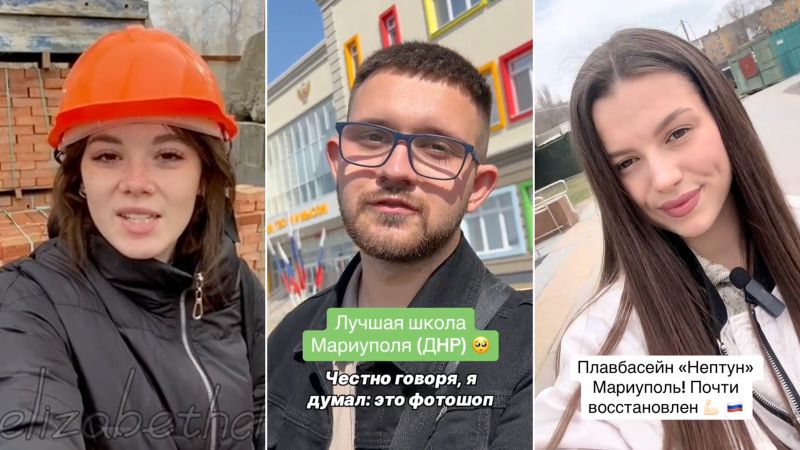The article sheds light on how Russia is exercising control over the occupied city of Mariupol through social media and influencers. By focusing on the training of local residents, including school children, in new media programs linked to the Russian state, it illustrates a strategic approach to maintain influence and control in the region.
Implications of the Article's Release
The release of this article suggests an intention to inform the public about the evolving tactics of Russia in occupied territories. By highlighting the use of social media as a tool for propaganda, it aims to create awareness regarding the ways in which influence can be exerted in modern conflicts.
Perception Among the Public
The narrative encourages skepticism towards the information disseminated by these influencers and raises concerns about the manipulation of young minds. It seeks to foster a critical understanding of how state-sponsored narratives can shape public opinion, particularly in conflict zones.
Potential Concealment of Information
While the article focuses on the impact of social media, there may be a broader context of military or political maneuvers in Mariupol that is not fully explored. The emphasis on social media might distract from other pressing issues on the ground, such as economic conditions or military presence.
Manipulative Nature of the Report
The article can be seen as having a manipulative aspect due to its framing. By underscoring the influence of social media, it may evoke emotional reactions regarding the loss of autonomy among the local population. This framing can serve as a tool to rally support for actions against such propaganda efforts.
Truthfulness of the Content
The article appears to be credible, particularly as it is backed by an investigation from a reputable news organization. However, the choice of focus may influence the overall narrative, possibly leading to a one-dimensional view of a complex situation.
Public Sentiment Targeted
The report likely resonates more with communities that value freedom of expression and are wary of authoritarianism. It appeals to those concerned about the implications of state control over personal narratives and the impact on youth.
Economic and Political Repercussions
This type of reporting can influence public opinion and possibly drive political action in response to perceived threats from Russian propaganda. It may affect economic relations, especially if countries reconsider their engagements with Russia based on its tactics in occupied areas.
Global Power Dynamics
In the broader context of international relations, the manipulation of information in conflict zones can shift global perceptions of Russia. The article aligns with current discussions about misinformation and state control, making it relevant to ongoing geopolitical debates.
Use of AI in Article Composition
It’s possible that AI tools were employed in the writing process, especially in data gathering or initial drafting phases. AI models could have influenced the style and tone, ensuring the article aligns with journalistic standards while addressing complex issues succinctly.
Conclusion on Reliability
Overall, the article is a reliable source of information regarding Russia's tactics in Mariupol, though it may carry an underlying agenda to provoke critical reflection on state control through media. The focus on social media as a tool for influence is timely and relevant in today's information landscape.
